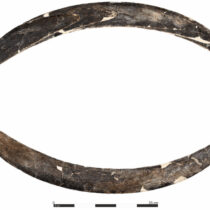The significance of a modest literary work of the Early Christian period, assigned by its manuscript tradition to a Neoplatonic “philosopher Salloustius”, known from the surviving ΛΟΓΟΙ (=Speeches) of the emperor Julian, has not as yet been properly evaluated. This work was in circulation throughout the Middle Ages in the capital of the Byzantine Empire, Constantinople, and in other major centres of the East under the title Περί θεών και κόσμου (=Concerning the gods and the world). Its content leaves no doubt that when it was written — soon after the middle of the fourth century AD – its purpose was to serve the planned religious reformation of the emperor Julian, who had already been numbered among the distinguished Neoplatonic philosophers. The small group of the Neoplatonists of Constantinople, gathered round Julian and Sallustius – the latter being a firm opponent of Christianity but also a modest thinker and advisor to the emperor —, exhibits in a kind of manifesto its fundamental religious and philosophical principles for which the reformers were going to strive. A few years earlier, the most famous Neoplatonists had lived in Greece and in the West, and their works had dominated the philosophical thought of the then known world in its entirety: Porphyrius, a student of the founder of Neoplatonism Plotinus, and lamvlichus. The works of these great phiiosophers had affected the thought of the Neoplatonists of Constantinople.
Neoplatonic philosophers of the fourth century AD who attempted to save the ancient religion
09 Aug 2012
by Archaeology Newsroom
- A
- A
- A


